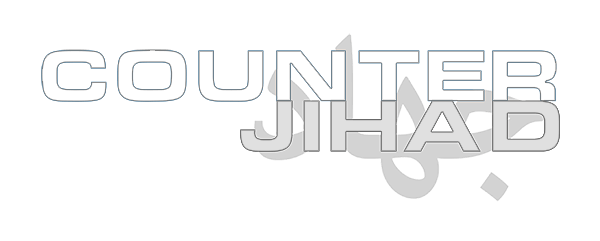
Slander, Blasphemy & Censorship
Facebook Banned Me for Criticizing Islamists, But I Got the Last Laugh
My Facebook silencing was temporary. I had the ability to fight back, but many people don’t.
BY Shireen Qudosi · @ShireenQudosi | September 2, 2016
You don’t wake up one day and decide you’re going to take on a 1400-year-old religion.
If no one in their right mind would ever want to earn their living as a writer, being a Muslim activist against Islamism is an even less desirable lifestyle choice. This isn’t something you do for fame or fortune. This is a calling, an acknowledgement that your conscience doesn’t allow you to do something else.
Critique of Islamic doctrine is easy; it’s all there in black-and-white. Helpfully, authorized translations of Islamic texts on Sharia law are widely available in English. The most apologists and clueless ideologues can do is pretend they don’t exist.
Arguing with Islamists and their fellow-travellers, however, is a lot tougher. Islamists work within the open societies of the West to create a more favorable climate for Islamic ideology. Now, they work comfortably alongside a new generation of Muslim Americans who are more stridently leftists. These are young Muslims who might condemn violent jihad (excepting “resistance” against “occupation,” of course, but only if the occupiers are non-Muslim). They might not even necessarily care about Sharia, other than to reflexively defend it against criticism. They may date, wear revealing clothing, and they probably don’t even pray once, let alone five times daily.
Theirs is an identity forged from the most fervent anti-colonial 20th Century leftist thought. In this way, these young leftist Muslims are more like the disciples of non-Muslim Edward Said than the religious Muslim Brothers they frequently fellow-travel with. What ties them together is an implicit Islamic supremacy and the rigid view that Islam and Muslims are above critique, especially by non-Muslims. These are the American Muslims glorified and fawned over by liberal media and politicians.
While ISIS runs amok on social media, so do organized campaigns of harassment against people like me, who press for real reform within Islam.
On August 24, Facebook banned me for publicly sharing screen shots of a private conversation I had with Javed Ali, the founding publisher of Illume Magazine, the nation’s largest Muslim publication. I knew Ali long before his magazine rose to prominence, and long before he’d became part of an inner circle of politically “progressive” Muslims.
Despite our many differences on Islam and domestic politics, Ali and I have had a cordial exchange over the years. A few weeks ago, I had encouraged him to try to re-start Illume; he’d asked me about marketing advice for his new halaal business. Despite our views, there was some mutual respect – until I triggered him by attacking CAIR.
In late August, I shared a link on Facebook that drew attention to the Muslim grievance professionals at CAIR. This time, CAIR-San Diego—a chapter of the Islamist group notorious for crying Islamophobia—had challenged a San Diego Police Department training session. The training was conducted by national security analyst Ryan Mauro, who frequently leads vital training initiatives for the law enforcement community. Not content with trying to cancel the event, the local CAIR chapter launched a campaign of harassment against every attending officer.
Clearly enraged at my attacks on CAIR, Ali savaged me in Facebook comments. Indeed, he created upwards of five fake Facebook accounts in order to keep after me. More than anything, though, he attacked me for fighting for reform within Islam, saying things like:
you’re trying too hard. You need not to brand yourself as a ‘Muslims Reformer’ to get rich quick… not a very productive path i have to say. it’s written all over your posts and in how you conduct your online activities. all you are trying to do is get access to that $ that fuels everything you pretend to be fighting against. wake the f— up.
When his public attacks didn’t work, he resorted to attacking me in direct messages with an increasingly belligerent and hostile tone. I warned him the messages would be made public if he didn’t cease. When that didn’t work, I had warned him that I’d expose him.
I did.


By the next day, Facebook had slapped me on the wrist with a 24-hour ban for sharing my post and screen shots of the conversation. The block grew to 48 hours, and by the end of the second day I was banned from Facebook. Ali likely had many people blitzkrieg my account with complaints in order to trigger the total ban.
I spent the next few days trying to spread awareness of what they’d done to my voice. I took to Twitter with a captioned photo that started going viral with over 600 retweets in the first 48 hours. The Clarion Project also drew attention to the story, as did a community of closely-knit feminists.
I also submitted a letter challenging Facebook in which I detailed how the ban is detrimental to my efforts as an activist. Facebook is a powerful platform for me and it’s taken me years to earn trust and credibility there. The group effort was successful. By Sunday afternoon, my account was reinstated—but all evidence of Ali’s harassment were purged.
The last laugh was on Ali, though. A few days after I was verbally assaulted and belittled for being a Muslim reformer, I went on national TV and exposed the ‘faux-progressives’ of the Obama administration to millions of viewers. I appeared on Fox Business’ Varney and Co. discussing a burkini-ban op-ed that had made the front page of Fox News’ website.

As a Muslim Reformer, I’m frequently challenged and attacked for my views. I’ve had people threaten my life, challenge my integrity, and even say the most horrible things about my five-year-old son that I could never repeat. This is emotionally exhausting work, and it’s a reason why a lot more Muslims don’t speak up. This isn’t easy.
And that’s why I felt it was so important to expose Ali and speak out about how so-called progressives treat and harass Muslim women behind closed doors. Ali would never speak to anyone in public that way, but he felt comfortable abusing me because (a) I wasn’t part of the group think most progressive Muslims belong to and (b) I was fair-game the minute I was either a woman, a challenging woman, or an outspoken women. Perhaps both.
Writer Asra Nomni told me that, in her experience, economic harassment is a common tactic used to smear critical thinkers and Muslim reformers. Asra, who is also frequently attacked and silenced for her views, is a veteran in handling such confrontations.
These attacks fall into the “Wheel of Power and Violence,” a diagram used to explain systems of control in domestic violence cases. It’s also the very first line of attack employed by Islamists to discredit our authority and our autonomy. By accusing us of being financially motivated, they try to strip us of our agency.
When women are physically assaulted or raped, we tell them to speak up. We urge them to “say something,” to document and report it so that it might help others. A psychological attack is also traumatizing – but there’s more than the trauma.
In this age of social media, having your voice stripped from you feels paralyzing. I felt so enraged and cut-off. And I thought of Raif Badawai, a Saudi dissident blogger who was sentenced to 1000 lashes and over a decade-long prison sentence “insulting Islam through electronic channels.” I thought of every Muslim freethinker in the Middle East and South Asia who is silenced because their views don’t conform. I thought of every Muslim women living in America who has to stay silent because she is still economically dependent on her family.
An attack is very personal and it’s important to keep your emotions in check, to remember there is a much bigger picture and this is just one day in one battle in a greater war that so many other people are drawn into. I thought of Omran, the five-year-old boy who became a symbol of the Syrian war. I wondered if he had anything to eat today. Anchoring yourself to what matters, remembering that it’s about more than just you, gives you what you need to keep fighting.
My Facebook silencing was temporary. I had the ability to fight back, but many people don’t. They don’t know what to do, and they don’t know where to start. I hope my story illustrates how to begin.

Influence: The Muslim Brotherhood in America
Islamists Set Their Sights on Georgia and the Tea Party
Partnering with the Hamas-linked CAIR is not a good thing.
MORE ABOUT Slander, Blasphemy & Censorship
Backgrounders
UN Resolution 16/18
The Organization of Islamic Cooperation and the Obama administration have joined in endorsing a heckler’s veto on freedom of speech in violation of America’s most deeply-held political principles.
Slander in Islamic Law — What You’re Not Allowed to Say or Know
In sharia, the word translated as “slander” is the Arabic word ghiba. It means to say anything about someone that they do not like, even though it is true.
BREAKING NEWS & RESEARCH

Israeli Ambassador to USA Slams SPLC for “Practicing Intolerance”
Ambassador Ron Dermer said that the Southern Poverty Law Center claims to defend tolerance for those who "look different," but works to suppress those who "think different."

EXCLUSIVE: ‘Civil Rights’ Groups Fearmongering Over Trump “Hate Crimes” Backed Hillary
Clinton donations expose political agenda behind calls for Trump to reconsider “racist” Cabinet picks

Georgia Legislator Introduces, Quickly Withdraws Islamic Veil Ban
A quick death for an attempt to reform a bad law with a defensible purpose.


